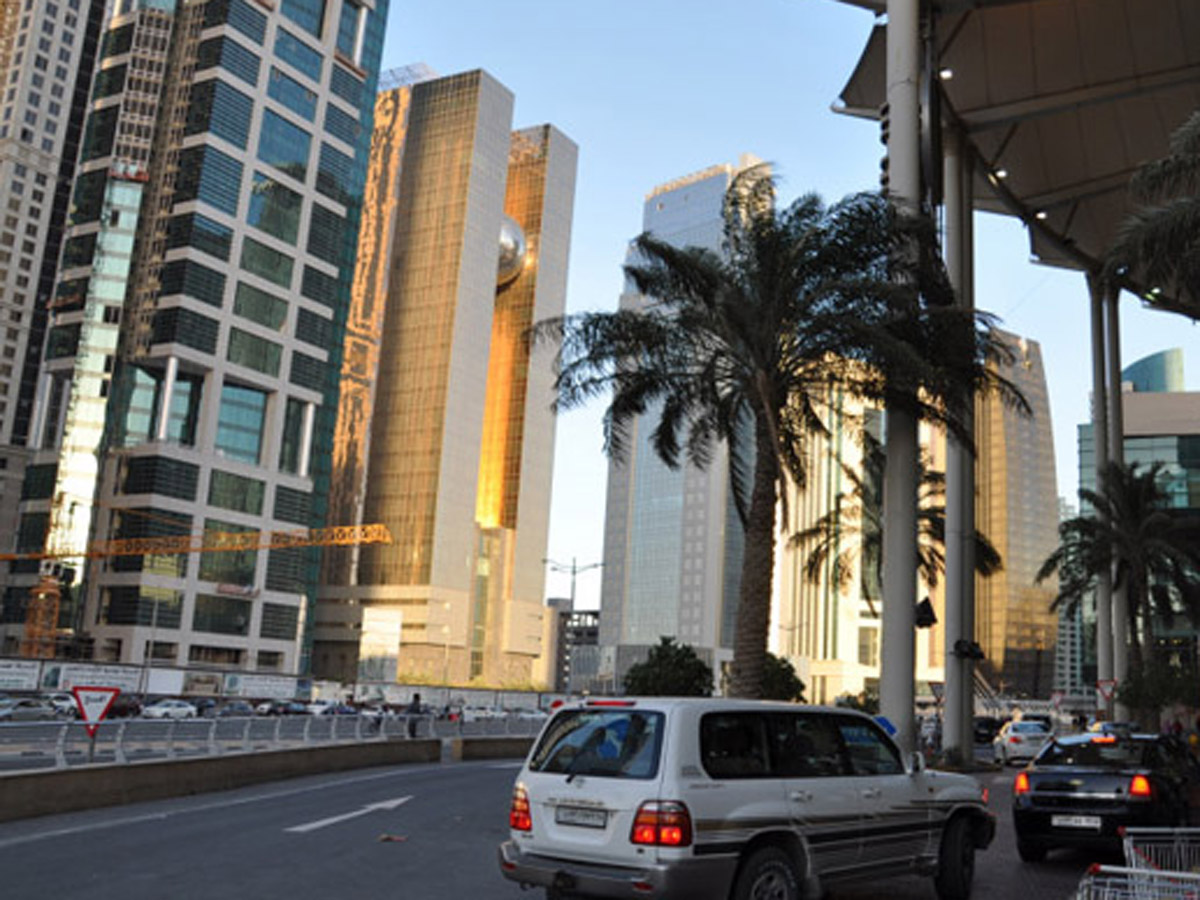Baku, Azerbaijan, March 27
By Azer Ahmadbayli – Trend:
Middle East reminds of a large nuclear plant, where an ongoing controlled chain reaction splits uranium atoms, releasing more and more neutrons and generating more and more heat.
The process is controlled by special protection system. However, if, by some reason, the mass of the fissile matter goes beyond the critical point, the reaction becomes uncontrolled, accompanied by release of a huge amount of energy and destruction.
Continuous accumulation of arms in the region gradually heats up the political environment, indicating that diplomatic means make way for sword law and deterrence. What is this if not a clear sign of an impending war? I'd be happy to be wrong.
Countries, mature in advanced arms technologies, don’t disdain to impregnate the Middle East with deadly types of weaponry, making money for development and production of the next generation technologies. Figuratively speaking, production of the latest type of IPhone or electric car is directly or indirectly dependent on loss of lives in Syria, Iraq and Yemen. Quite a “favorable” relation.
On the other side, the region’s countries are on a one way street to nowhere, unable to stop buying weaponry under the pretext of protecting themselves from aggressive neighbors or fighting terrorism.
Also, what about nuclear weapons? Oh, no, selling nuclear technologies is taboo, as “those crazy people” can get out of hand threatening prosperity of the “civilized world.”
According to Defense Security Cooperation Agency (DSCA), since the beginning of 2018 the US State Department has approved nine major arms sales to the Middle East states:
To Saudi Arabia - sale of TOW 2B (BGM-71F-Series) missiles for an estimated cost of $670 million; sale of a Royal Saudi Land Forces Ordnance Corps Foreign Military Sales Order (FMSO) II Case for an estimated cost of $300 million; sale of equipment and services for the continuation of the Maintenance Support Services (MSS) contract that supports the Royal Saudi Land Forces Aviation Command for an estimated cost of $106.8 million; sale of continuation of missile system support services for an estimated cost of $500 million;
To the United Arab Emirates - sale of three hundred (300) AIM-9X-2 Sidewinder Block II missiles, forty (40) AIM-9X-2 Sidewinder Captive Air Training Missiles (CATMs), thirty (30) AIM-9X-2 Block II Tactical guidance units, fifteen (15) AIM-9X-2 CATM guidance units, containers, spares, support equipment and missile support for an estimated cost of $270.4 million;
To Qatar - sale of equipment and support to upgrade the Qatari Emiri Air Force’s (QEAF) Air Operation Center (AOC) for an estimated cost of $197 million;
To Kuwait - sale of King Air 350ER Intelligence, Surveillance, and Reconnaissance (ISR) aircraft for an estimated cost of $259 million; sale of fast patrol boats for an estimated cost of $100 million;
To Oman - sale of items and services to support an incremental Operational Flight Profile (OFP) software upgrade for F-16 subsystems, as well as Identification Friend or Foe (IFF) and secure communications equipment for Mode 5 operations for an estimated cost of $62 million.
Other producers of advanced military hardware try to keep pace with the US.
Iraq has recently expressed interest in purchasing Russia’s advanced S-400 surface-to-air missile defense systems. Moscow’s ambassador to Iraq, Maksim Maksimov, said that Russia is ready to sell the Iraqis S-400s if a “suitable request” for the systems is made. He noted that “large amounts of military equipment” – including MI-35M and MI-28N helicopters, SU-25 fighters and anti-tank Kornet-TI – has already been sent to Iraq to help defeat the IS (Islamic State Terrorist organization).
Iraq, which ordered 73 T-90 main battle tanks from Russia last year, has taken delivery of the first batch of 36.
Russian Ministry of Defense is preparing to sign military cooperation agreement with Lebanon, entailing, among other things, access of Russian warships and military aircraft to Lebanese ports and military airfields, military exercises, training of Lebanese army staff, etc.
Russia has given Egypt a license to assemble 400 T-90S\SK battle tanks locally. Egypt will begin assembling first T-90S battle tanks from 2019 after receiving the needed technology from the Russian Uralvagonzavod company, the manufacturer of the tank.
Qatar has signed an agreement with Turkey to establish a naval base. The agreement came during the Doha International Maritime Defence Exhibition and Conference (DIMDEX) 2018. Turkey will also export six armed, unmanned aerial vehicles to Qatar’s armed forces. Qatar has reportedly spent $800 million on various defense wares during DIMDEX.
Britain is considering establishing a permanent military presence in Kuwait at the request of its government, which was revealed by Michael Davenport, British Ambassador to Kuwait, during his interview with Forces Network. He said the Kuwaiti government has expressed interest in such a presence, but stressed it would not be a "major" deployment.
All those contracts, agreements and physical supplies took place within only last two months of this year in addition to multibillion contracts concluded last year.
There are also a number of smaller deals which I omit.
Do the region’s states really need such heaps of deadly mechanisms? Are they ready to recognize their inability to see eye to eye with each other?
If yes, the region risks turning into second Fukushima.






